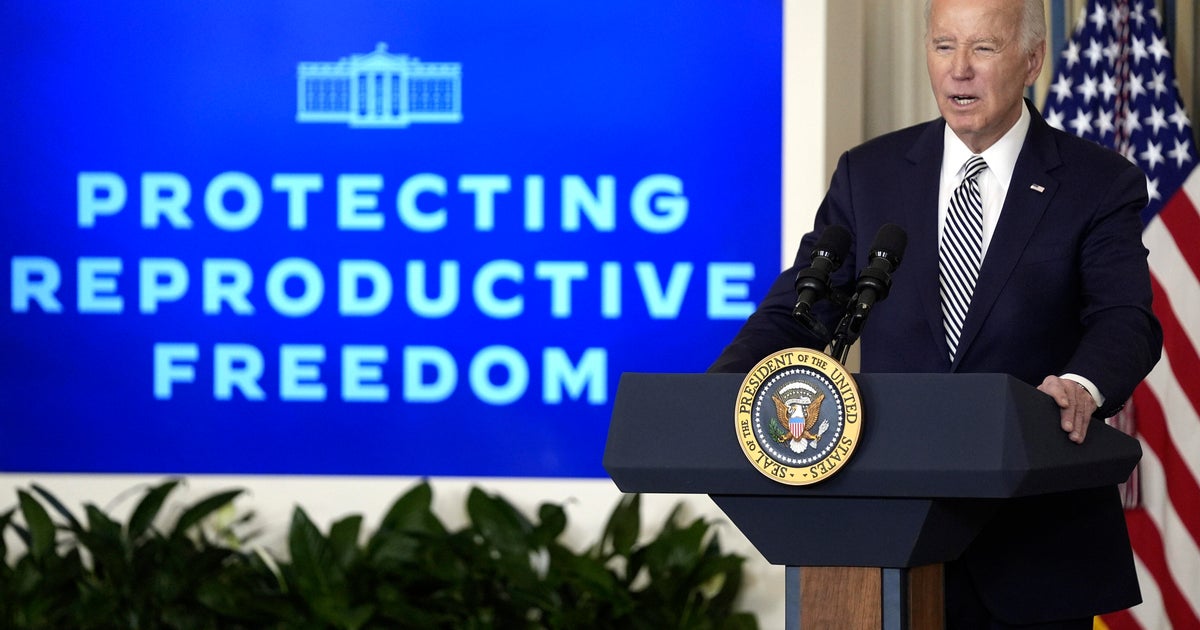Death Penalty 'Compromise' Headed To Senate Floor
Follow CBSMIAMI.COM: Facebook | Twitter
TALLAHASSEE (NSF) – Florida lawmakers are poised to resolve a fundamental flaw with the state's death-penalty sentencing system, as a Senate measure heads to the floor for a vote as early as next week.
The House already approved its version of the proposal addressing a recent U.S. Supreme Court decision that struck down Florida's capital-sentencing process as unconstitutional.
On Thursday, the Senate Appropriations Committee amended a Senate version to align it with the House's plan, which would require at least 10 jurors to recommend the death penalty for the sentence to be imposed. The move Thursday receded from the Senate's original position, which would have required unanimous jury recommendations for death.
The committee's 12-6 approval of the measure (SB 7068) virtually guaranteed that lawmakers will send a bill to Gov. Rick Scott before the end of the legislative session March. 11.
The Jan. 12 U.S. Supreme Court ruling, in a case known as Hurst v. Florida, did not specifically address unanimous jury recommendations to judges about imposing the death penalty, a process that happens after jurors determine whether aggravating factors exist. But the issue of unanimity --- or 10-2 or 9-3 recommendations --- became a flashpoint for lawmakers in debate over the legislation.
The ruling dealt with the sentencing phase of death-penalty cases after defendants are found guilty, and it focused on what are known as aggravating circumstances that must be determined before defendants can be sentenced to death. A 2002 U.S. Supreme court ruling, in a case known as Ring v. Arizona, requires that determinations of such aggravating circumstances must be made by juries, not judges.
Effectively putting death sentences in Florida on hold, the 8-1 decision found that the state's system of giving judges --- and not juries --- the power to impose death sentences is an unconstitutional violation of defendants' Sixth Amendment right to trial by jury.
The plan overwhelmingly approved by the House last week, and agreed to by the Senate committee on Thursday, would require jurors to unanimously find that at least one aggravating factor exists before a defendant can be eligible for a death sentence. At least 10 jurors would have to recommend death for the sentence to be imposed.
Of the 31 states with the death penalty, Florida is one of only three that do not require unanimous jury recommendations for death to be imposed. The other two --- Alabama and Delaware --- require at least 10 jurors to recommend death, while Florida requires a simple majority.
Nearly all death penalty experts --- with the exception of state attorneys --- recommended that requiring unanimous jury recommendations would inoculate Florida from future court decisions regarding the constitutionality of the death penalty.
But prosecutors, including Attorney General Pam Bondi, argued that unanimous recommendations would allow single jurors to "hijack" the process.
During debate on the measure Thursday, critics of the plan questioned why the Senate was backing down from unanimity, required for all other jury verdicts in Florida.
"Why don't we expect unanimity when a life is at stake, when in fact we expect unanimity in other matters before the court?" Senate Minority Leader Arthenia Joyner, a Tampa lawyer, asked. "I know that ultimately we'll probably end up back before the Supreme Court on this issue, because the way I see it, the trend is toward unanimous jury verdicts."
Senate Criminal Justice Chairman Greg Evers, the bill's sponsor, said the 10-2 recommendation was a compromise with the House.
"We knew that we had to have a bill. We knew that it had to pass this session," Evers, R-Baker, said. "We had to reach that middle ground. That's the reason we came up with the 10-2."
But Sen. Thad Altman, a Rockledge Republican who has repeatedly sponsored proposals that would require unanimous jury recommendations in death-penalty cases, questioned the strategy.
The House would be unlikely to stick to a non-unanimous proposal if that meant leaving the state without a death-penalty sentencing system, Altman predicted.
"I do not believe we need to diminish our position, constitutionally, based on what the House would like," he said.
While lawmakers address the statute, the Florida Supreme Court is weighing the impact of the Hurst decision on a number of death penalty cases.
The Florida court indefinitely postponed the execution of Cary Michael Lambrix, scheduled for earlier this month, and will hear arguments Wednesday in the case of Mark James Asay, scheduled to die on March 17.
Lawyers for Asay and other Death Row inmates contend that the Hurst decision should be retroactive and apply to all of the 390 inmates sentenced to die for their crimes.
The U.S. Supreme Court ruling did not say whether it should apply retroactively, and Bondi's lawyers instead have identified 43 cases that would qualify for reconsideration as a result of the Hurst decision.
Myriad factors --- timing, aggravators involved in determining whether defendants were eligible for the death penalty and the jury instructions --- have to be considered when evaluating whether Hurst applies, Bondi said.
"It has to be on a case-by-case basis," she said recently.
The News Service of Florida's Dara Kam contributed to this report.



